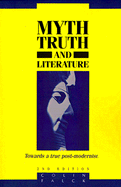Book contents
Appendix: Romanticism and poetics
Published online by Cambridge University Press: 03 May 2011
Summary
Man thinks, feels, and lives within language alone … But he senses and knows that language is only a means for him; that there is an invisible realm outside it in which he seeks to feel at home and that it is for this reason that he needs the aid of language.
wilhelm von humboldtKant's main purpose in his Critique of Pure Reason was to show that our theoretical knowledge must necessarily be restricted to the operation of our conceptual understanding within the realm of actual or possible empirical experience. Any awareness we might have of a unifying “whole” which lies within or behind empirical experience belongs to the realm of reason, and cannot in any way be established by means of empirical experience or conceptual argument. Our understanding alone cannot prove that the natural world will go on behaving in ways that conform to our intelligence; nor can it prove that that world will go on behaving in ways that bear any relation to our moral or spiritual interests. To go on being able to live in such a world, on the other hand (and this is the main premise of Kant's moral philosophy, as in his Critique of Practical Reason), we must in fact make certain assumptions about the essential nature of the universe “as a whole.” We must assume, or act “as if,” the natural order around us will not in fact break down; and we must assume, or act “as if,” the moral duties that we believe to be laid upon us can also in practice be carried out.
- Type
- Chapter
- Information
- Myth, Truth and LiteratureTowards a True Post-modernism, pp. 171 - 204Publisher: Cambridge University PressPrint publication year: 1994



